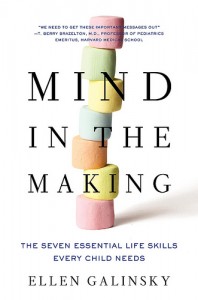Therapy Works, but…
Headlines (same survey) tell a story: Talk therapy as good as antidepressants. But Americans prefer drugs for depression. Go figure.
Take a Nap
Sara Mednick, PhD wants you to take a nap. She wrote a book about it (Take a Nap, Change Your Life). No, you don’t have to stop at 20 minutes:
Research shows longer naps help boost memory and enhance creativity. Slow-wave sleep — napping for approximately 30 to 60 minutes — is good for decision-making skills, such as memorizing vocabulary or recalling directions. Getting rapid eye movement or REM sleep, usually 60 to 90 minutes of napping, plays a key role in making new connections in the brain and solving creative problems.
“Burnout Syndrome”
The nervous breakdown gets a name change:
In recent years, psychiatrists in Europe have been diagnosing what they call “burnout syndrome,” the signs of which include “vital exhaustion.” A paper published last year defined three types: “frenetic,” “underchallenged,” and “worn out”…
The Angry Brain
From ScienceDaily, a portrait of the chemistry of the angry brain. Summed up:
When we get angry, the heart rate, arterial tension and testosterone production increases, cortisol (the stress hormone) decreases, and the left hemisphere of the brain becomes more stimulated.
Free Mental Health Help for Vets
Give an Hour connects vets with therapists who donate time each week. A collection of profiles of the organization is linked here. The mission is simple:
GAH is dedicated to meeting the mental health needs of the troops and families affected by the ongoing conflicts in Iraq and Afghanistan. We provide counseling to individuals, couples and families, and children and adolescents. We offer treatment for anxiety, depression, substance abuse, post-traumatic stress disorder, traumatic brain injuries, sexual health and intimacy concerns, and loss and grieving.
Embedded Therapists
Another for Memorial Day: Embedded therapists protect National Guard members’ mental health.
“Some of the best conversations I have with them are at one in the morning in a Humvee during a training exercise”…The soldiers want to talk about everything, from the trauma they suffered in losing friends to family, job, finances and other post-deployment adjustment problems. He refers those with serious problems, such as post-traumatic stress disorder, for further help.
Virtual Reality v. PTSD
For Memorial Day, some progress amidst the generally sobering veteran’s mental health news:
Exposure therapy using virtual reality appears to be more effective for alleviating symptoms of post-traumatic stress disorder (PTSD) than traditional treatment among members of the military who have served in Iraq or Afghanistan, researchers said here.
Here, a longer, older New Yorker piece covers the same in more detail.
The Wait for Happiness
From telegraph.co.uk: Happiness begins at 50 claims new research.
Variables such as having young children, being unemployed, or being single did not affect age-related patterns of well being. The research showed that levels of stress, worry and anger all dropped significantly in the fifties and levels of happiness and enjoyment increased.
Rather listen than read? Here’s a quick NPR story on the study.
Mind in the Making
 In U.S. News: A brief interview with author Ellen Galinsky.
In U.S. News: A brief interview with author Ellen Galinsky.
Her new book, Mind in the Making: The Seven Essential Life Skills Every Child Needs, includes hundreds of simple ways that parents can use games and activities to promote the development of life skills in children.
What are the seven skills? Here’s her list:
- Focus and self-control
- Perspective-taking
- Communicating
- Making connections
- Critical thinking
- Taking on challenges
- Self-directed engaged learning
Yours may vary.
Silver Lake Therapist
I’ve added the Ambrose Ave. address in Los Feliz to the therapy offices page. Still going strong: locations in Silver Lake (at Sunset Junction) and Beverly Hills (on Robertson, just south of Olympic).
Help with anxiety, depression, relationship problems, stress-related chronic pain, and addiction recovery.
Call or write to arrange a first appointment: (323) 610-0112, will@willbaum.com.